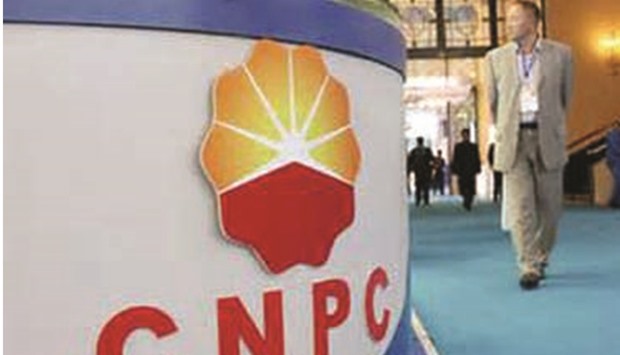China National Petroleum Corp decided last month to invest in expanding a major natural gas pipeline after determining the government will no longer seek to spin off its pipeline assets into an independent company, people with knowledge of the plan said.
One reason why a national pipeline company that provides access to all producers is no longer needed is because opposition among policymakers has increased to opening upstream exploration to more participants, which was being considered as part of the industry’s reform guidance, according to the people, who ask not to be identified because the information isn’t public.
CNPC’s Beijing-based spokesman Qu Guangxue and a Beijing-based spokesman at China Petrochemical Corp didn’t respond to requests seeking comment. The two companies together own about 90% of China’s 120,000 kilometre (74,580 mile) pipeline network. National Development and Reform Commission, the country’s top planner, didn’t respond to faxed questions. CNPC hasn’t disclosed the value of its investment in the Shaanxi-Beijing pipeline.
“It’s a rational decision as the super-low crude prices have made it unnecessary for China to tap its somewhat difficult geology for oil and gas,” said Laban Yu, head of Asia oil and gas equities at Jefferies Group in Hong Kong. “Apart from the high environmental costs, few explorers including CNPC can make a profit if the crude price stays low for a prolonged period of time.”
China’s total crude output dropped 4.6% to 101.59mn tonnes in the first six months of the year, the lowest since 2012, according to data from the National Bureau of Statistics.
The government has also grown colder to the pipeline spinoff idea because the costs and benefits of creating a new entity were uncertain and over concern new explorers may increase air, soil and water pollution, said the people.
China is reorienting its reform efforts in the $1.8 trillion state sector as President Xi Jinping this month called for stronger and improved leadership among state-owned enterprises. The companies are the “major force to boost the comprehensive strength of the country and to protect the common interests of the people,” he said at a meeting on reforms for state-owned enterprises in Beijing earlier this month. “We should make them bigger, better and stronger with full confidence.”
CNPC announced last month that it had made a final investment decision on the fourth Shaanxi-Beijing pipeline, which runs more than 1,000km (620 miles). The first Shaanxi-Beijing pipeline started operations in 1997 and the second began in 2005. The third line was completed in 2010. Construction of the fourth was approved by the NDRC in 2014.
China had begun looking at stripping its biggest energy companies of their oil and gas pipelines to allow access to all gas producers and distributors, Bloomberg reported in May 2015. PetroChina president Wang Dongjin said in August that spinning off pipeline assets was the right thing to do, while China Petrochemical & Petroleum Corp chairman Wang Yupu confirmed the same month that the company, known as Sinopec, has received a draft of the plan from the country’s economic planner.

China National Petroleum Corp announced that it has made a final investment decision on the fourth Shaanxi-Beijing pipeline, which runs more than 1,000km (620 miles).
